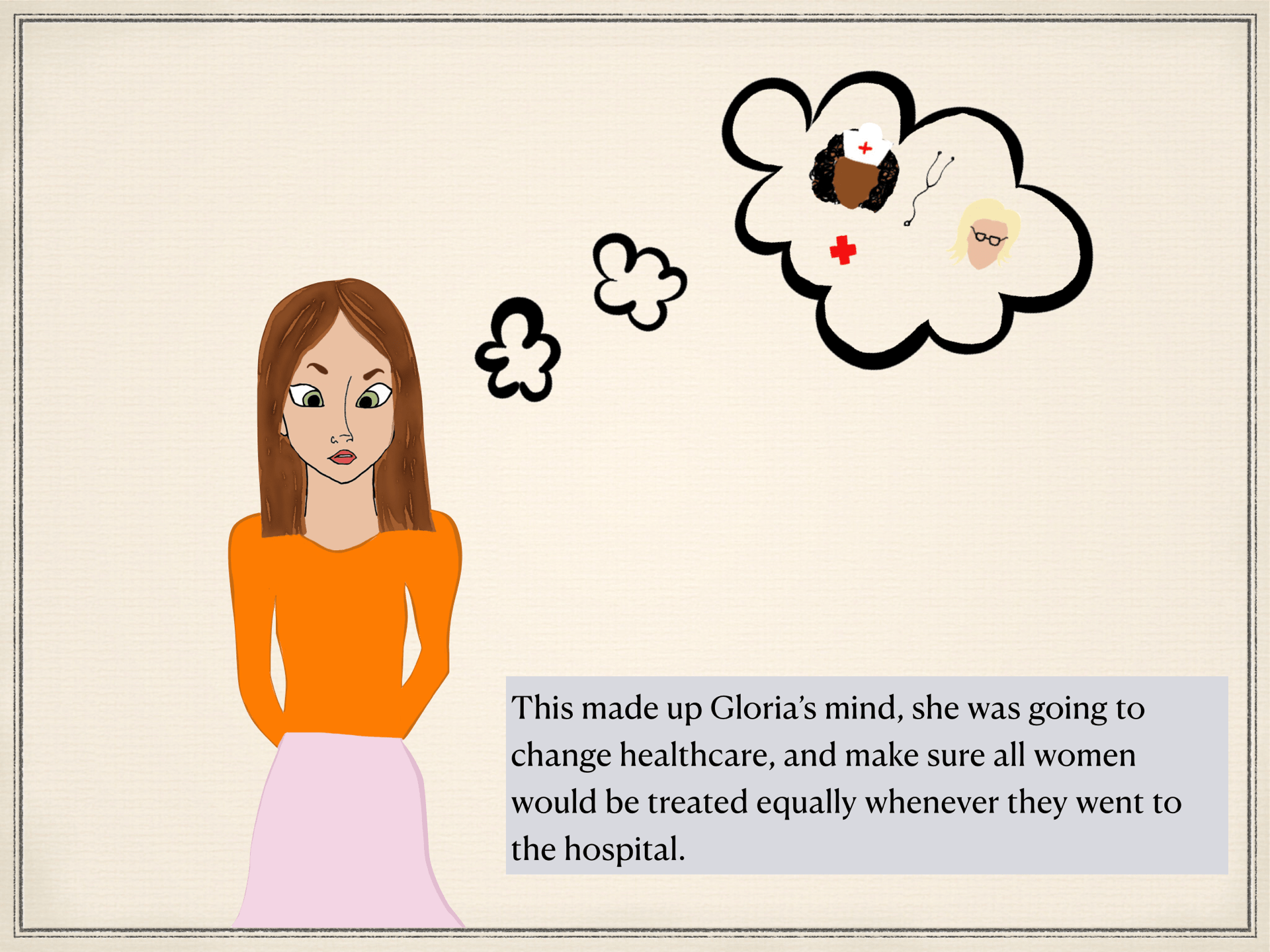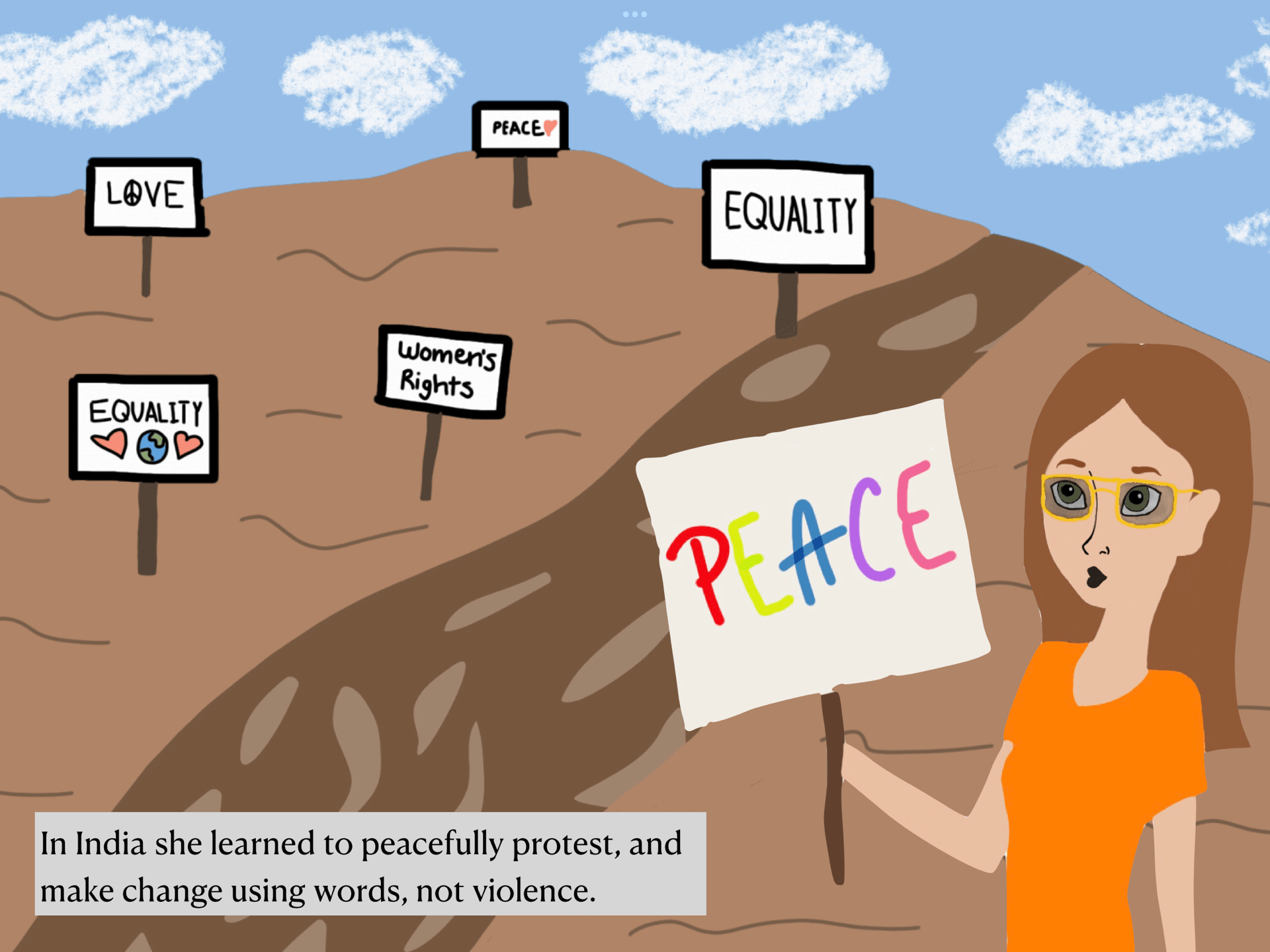Girls Just Wanna Have (Fun)damental Human Rights
What has happened to the word “feminist”? In this day it’s somehow used as an insult, but let’s not forget what it’s true meaning is. Feminism means to have equal rights and opportunities for all genders. Without feminism, we would still be living in a world where women didn’t have the right to vote, to own their own property or even have jobs the same way as men. That being said, there is still work to be done, which is why people of all ages should still be educated and shown that history is not to repeat itself and we are only to move forward. In this project, we created children’s books to get younger generations interested and educated in the concept.
How do we encourage children to support women’s rights?
As this project was a bit on the shorter side, we were quick to chose our book topics after having a few lectures on suffrage and the second, third and fourth waves of feminism. Ciara, Holly and I were inspired by the book on David Bowie by the “Little People, Big Dreams” series. We decided to make our book about Gloria Steinem’s life who was a nationally recognized leader in particularly the second wave of feminism. We were soon to realize how it was a lot tougher than it seemed to simplify her life, as well as breakdown complex topics such as abortion.

Our first step was to create a storyboard. We decided to focus our story primarily on women’s healthcare, because Gloria’s experience with undergoing an abortion at a young age and her mother being mistreated in the hospital due to her mental illness were some of the biggest reasons she decided to become an activist. Obviously we couldn’t state abortion by name in the book, but considering it as healthcare made almost the same impact.
As a class, we watched The Taming of the Shrew and 10 Things I Hate About You to come up with an answer as to how women are depicted in literature across time, and why it’s important to have strong representations of women. Meg and I agreed that it’s important to have positive representations of women, because it allows children to see that women are strong and independent. However, a positive representation doesn’t always necessarily mean a woman that doesn’t want to get married or have kids, or fit into what you call a “stay-at-home mom”. We compared the two Disney stories of Merida from Brave and Rapunzel from Tangled. Merida wanted to rule her family’s clan by herself and without a man she was forced to marry. Rapunzel did fall in love and get married in the end, yet she was still a strong and independent woman that was curious to see and experience the world. Thus, a strong representation of a woman isn’t restricted to one representation. In fact, the more the better, as it allows children to see that they could be whatever they want.

In the end, we presented our books to a kindergarten class at a nearby elementary school. The book was well-received by the children and they quote-on-quote “loved everything” about it. Although I wish my drawing skills were a lot better, the message was the most important part. Children at that age may still have trouble understanding the concept of feminism, but our book certainly depicted a strong woman that did a lot for the world in terms of equality and I hope that they were able to realize that.
















